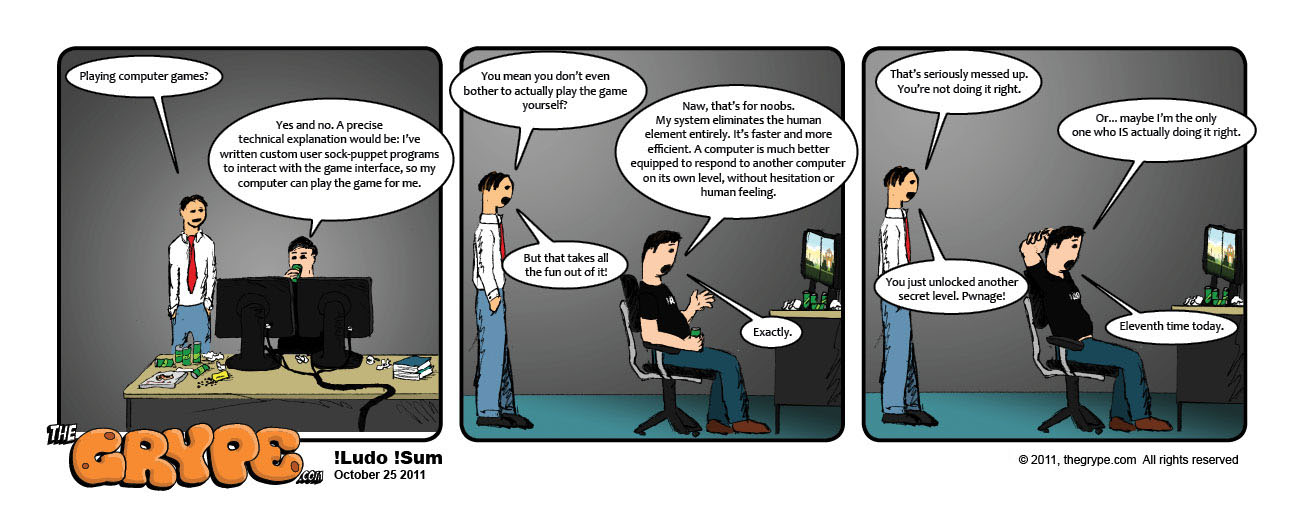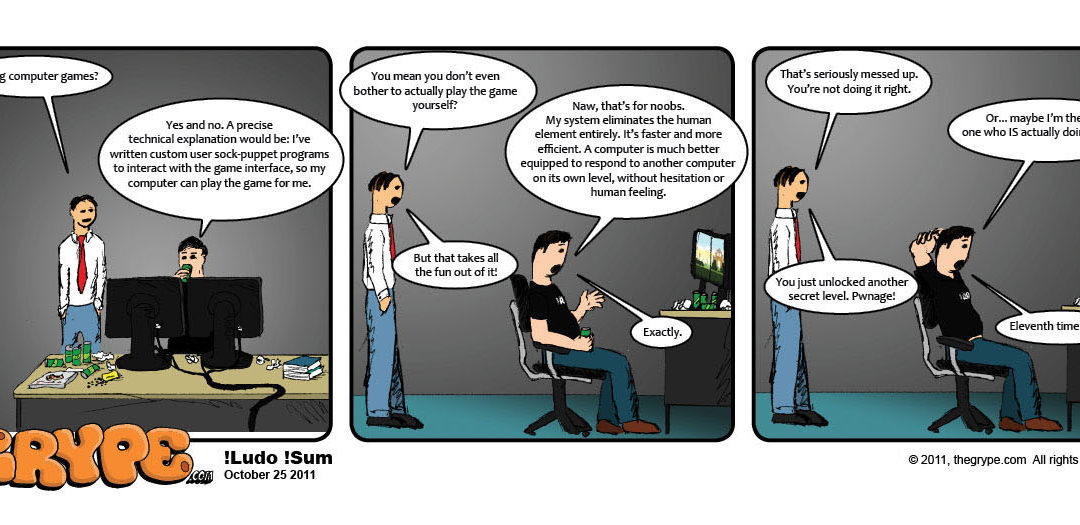 International business strategy for the past two centuries could be described as a constant, unrestrained surge of mechanization. Much of the informal business philosophy of the Industrial Revolution was based on the dubious assertion that machines— when suitably well-matched to the job— can always do a better job than human beings under the same circumstances.
International business strategy for the past two centuries could be described as a constant, unrestrained surge of mechanization. Much of the informal business philosophy of the Industrial Revolution was based on the dubious assertion that machines— when suitably well-matched to the job— can always do a better job than human beings under the same circumstances.
Better? Even 200 years later, the jury is still out. But…less expensive? In the long run, almost always. Although optimistic (if somewhat naive) sociologists have spent the past hundred years arguing that human slavery was suddenly discontinued in the industrial west in the early-to-mid 19th century due to a mass moral epiphany on the part of a suddenly-abolitionist society, if one studies the actual industrial trends of the time it’s pretty obvious that large-scale chattel slavery only really began to fade as an economic practice AFTER mechanization began to render most slave labor more expensive than machine labor… and therefore, obsolete.
And so it goes. As machines grew faster and more efficient, productivity soared and fortunes were made, borne on the rising tide of rampant mechanization. Formerly agrarian economies suddenly shifted into hubs of mass production on a scale unimaginable to previous generations. Business was booming (actually… once arms manufacturers caught on and warfare production also became mechanized, suddenly LOTS of things were booming). The standard of living slowly rose as products poured out of mills and factories. Speed meant surplus, and the cost of those products plummeted as inexpensively-made items flooded western markets. Life got better for SOME people; namely consumers who could afford the new goods, or the newly-mobile masses who abandoned destitute farms to toil in the new urban factories and marketplaces. Others—craftsmen and artisans— were forced to sit idly by and watch as their family trade was swallowed by the new behemoth of mechanized industry.
Is it any wonder why some among our forefathers envisioned a nightmarish future wherein mankind was completely dominated by the inhuman robotic products of his own foundries? The heartless machines of industry (it was feared) must one day arise to supplant the glory (and the paychecks) of man.
And now we have come to a pivotal point in history, when our hyper-complex computerized machines can read patterns in our behavior and correctly deduce our next actions, or beat our finest champions at Chess and Jeopardy by thinking faster and more abstractly than ever before— yet, as machines, they remain as stupid as ever. They are only as smart as the people who program them (Microsoft Vista, I’m looking at YOU). They can’t think FOR us, nor do they possess the flexibility to completely disregard their programming and completely change up their game on the fly. Such freedom of choice remains a human prerogative.
In the end, it would be indescribably foolish to expect mechanized industry to solve all our problems. Even in the business world. Because although one can design a machine to reliably perform a series of repetitive actions essentially forever, a machine has no conscience when it commits an error… and experiences no sense of pride or personal achievement when it performs well. When the system starts to break down, a machine has zero emotional investment in fixing things. A machine cannot strive; it merely exists to perform a function. It cannot grow, or truly improve. And while it might be advanced enough to perform an internal system diagnostic, it cannot perform a “gut check” to judge if its behavior is right, or beneficial, or proper.
A machine lacks any sense of honor, nor can it possess even a shred of dignity. That makes it easy to neglect and abuse, which makes it cheap to run; but that lack also prevents it from looking out for the best interests of its fellow employees, or the owner of that company, or the company itself.
Some people have trouble telling the difference between a tool and a toy. But no matter how shiny the machine, any competent businessman will think twice before trusting the future of his business to one.

